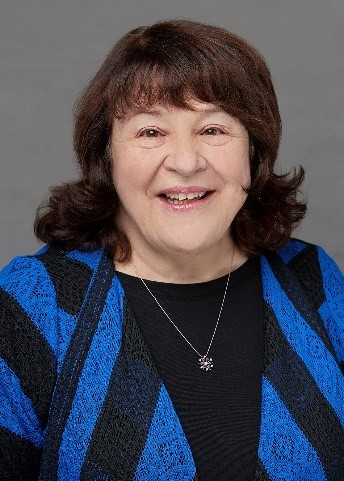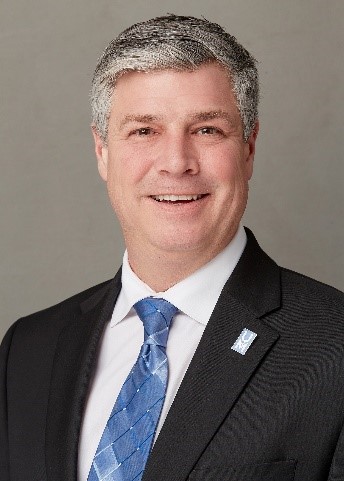Division of Research & Innovation
Project FIRST: Finding Innovative Rehabilitation Services Training
U.S. Department of Education funds groundbreaking research; driving outcome-based approaches in rehabilitation.
Project FIRST attempts to revolutionize training curricula by introducing outcome-based training, diverging from the conventional role and function studies that relied on assumptions about successful rehabilitation counselor characteristics. The $2 million grant advocates for a groundbreaking approach to rehabilitation training by proposing personnel training based on outcome measures derived from research on the most successful rehabilitation counselors. Unlike traditional methods, this research will focus on creating training programs based on content that predicts quality career placements for rehabilitation clients. Special attention is given to an innovative, outcome-based training program aligning with the Workforce Innovative Opportunity Act (2014) impact on the transition to work for young adults and youth.
Project FIRST has diligently undertaken extensive research, resulting in the development of five robust modules, each grounded in the analysis of disaggregated data that holds significant statistical relevance concerning its impact on both vocational rehabilitation counselors and client outcomes. The first module, Crisis, and Trauma Counseling delves into the profound effects of crises and trauma on clients, shedding light on the intricate dynamics that unfold in the counselor-client relationship within such contexts. This module enhances counselors' understanding of the psychological challenges clients face in crisis and equips them with effective strategies to navigate and support individuals through these difficult circumstances.
The second module, Medical and Psychological Aspects of Chronic Illness and Disability, critically explores the multifaceted dimensions of chronic health conditions and disabilities. By providing in-depth insights into the medical and psychological aspects, VR counselors can better tailor their support to meet the unique needs of clients dealing with long-term health challenges, fostering a more comprehensive and empathetic approach to rehabilitation.
The third module, Career Development, and Job Placement, addresses key aspects of vocational rehabilitation by offering comprehensive guidance on career pathways and job placement strategies. This module empowers VR counselors with the knowledge and tools necessary to assist clients in navigating the intricacies of career development, ultimately enhancing their prospects for meaningful employment and professional fulfillment.
Additionally, the fourth module, Health Care and Disability Management, explores the intersection of health care and disability within the rehabilitation context. By examining the nuanced relationship between healthcare systems and disability management, this module aims to equip VR counselors with a holistic understanding of the challenges and opportunities presented in supporting clients with disabilities through the healthcare landscape.
In a pioneering move, Project FIRST has also introduced a fifth module focused on pre-employment transitional services designed specifically for special educators, secondary students, and their families. This innovative training not only broadens the scope of vocational rehabilitation but also represents a significant leap forward in the field by accommodating both face-to-face and distance education formats. This adaptability ensures accessibility to a wider audience, making the knowledge and expertise cultivated by Project FIRST more widely available and impactful in diverse educational settings. Overall, these meticulously crafted modules collectively mark a milestone in vocational rehabilitation, providing a comprehensive and adaptable framework for counselors and educators alike.
Scholarly Articles: Published or in-press.
The Outcome-Based Perspective: Benefits of Field-Specific Rehabilitation Counselor Education.
Accepted
Disparities in closure rates by counselor’s caseload levels for clients with intellectual and developmental disabilities
UMID – Ongoing and new research.
- Challenges in Living Wage Employment For Individuals with Disabilities
- Subminimum Wage Employment among Individual with Disabilities: A Public Health Blind Spot
- Project FIRST: Finding Innovative Rehabilitative Services Training
For more details, visit >>
Team members:

Chrisann Schiro-Geist, Ph.D.
Professor Director, Institute on Disability, University of Memphis (UMID), Professor
(CEPR) University of Memphis
chrisann@memephis.edu
Curriculum Vitae
Biographical Sketch

Patrick Krolik, MBA
Project FIRST Grant Manager in the Department of Counseling, Educational Psychology
& Research (CEPR)
pjkrolik@memphis.edu
Curriculum Vitae
Kaylee Cook
Graduate Assistant, Institute on Disability, University of Memphis (UMID)
kaylee.cook@memphis.edu

Sushmitha Nandiki
Temporary Research Assistant, Institute on Disability, University of Memphis (UMID)
snandiki@memphis.edu
Jun Cai
Temporary Research Assistant, Institute on Disability, University of Memphis (UMID)
jcai3@memphis.edu
Christine Michelle Bouchard Temporary Research Assistant, Institute on Disability, University of Memphis (UMID) cmltsnbr@memphis.edu
